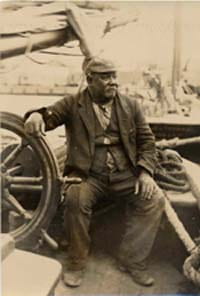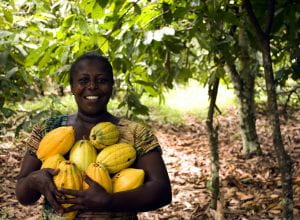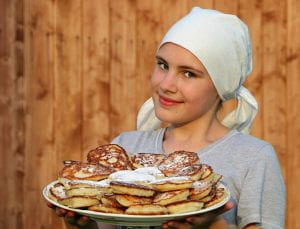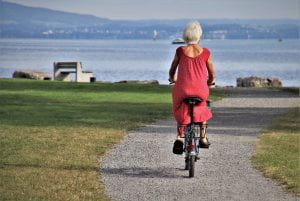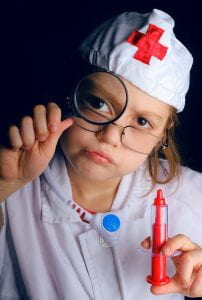Fantastic topic for #ANZAncestryTime chat especially with National Family History Month in August.
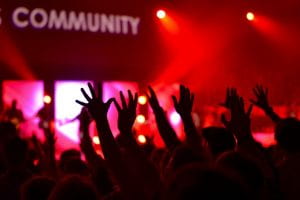
What do you think is crowd sourcing in relation to Family History?
Genealogists or family history type groups helping each other and working together for a common cause
Excellent definition Sue – succinct and yet comprehensive 🙂
For me it’s about asking for support for a collaborative project
I put a callout on the blog for guest bloggers to write about our shared family members. Maybe that’s crowdsourching? Btw I didn’t get anyone take up the offer
Some societies use guest bloggers to write posts weekly eg @gsq Yet another type of crowd sourcing. gsq-blog.gsq.org.au
Curious fox website curiousfox.com
I’m a member of a number of FB groups, occasionally I will ask for help when I’m stuck but I usually ask for help on How I can find the info I’m looking for so I can find it rather than ask someone else to find the info for me
There’s nothing like making the discovery yourself, that to me is what #genealogy is about plus you learn on how or where to find what your looking for
help from Ireland Reaching Out is a type of crowdsourcing where locals who know the place help researchers from afar.
Morning! Not sure that I can contribute a lot to the topic today but you’ve just quoted the one example I could think of. #ANZAncestryTime Although @duchas_ie also uses crowdsourcing and this can also be a great assistance to 20thC #FamilyHistory research – just ask
Also digitisation has overtaken some earlier indexing. Of course correcting Trove texts and adding to lists fits this category as well.
In NZ there’s the 1893 suffrage petition database nzhistory.govt.nz/politics/women… you are able to contribute a short bio
this event (Twitterchat) is an example of crowd-sourcing n’est-ce-pas?
I would argue that the 2 ancestryhours we participate in are a type of crowdsourcing as well.
There is CSI: Crowd Sourced Indexing available to genealogy societies and special interest groups for indexing their records. It is a free, web-based program I saw at #RootsTech a number of years ago. csindexing.com
The new versions of Rootschat email groups that I m a member of are definitely crowdsourcing with lots helping find info for someone with a question – mainly Tasmanian groups
not used crowd sourcing that much. I have a few FB groups for each of my family groups, in asking questions but hit and miss. Used wikitree but find mistakes.
Perhaps something like hawkesbury.net.au/claimaconvict/… where you can not only claim a convict but also contribute information about them
A great result of crowdsourcing is FreeUK Genealogy @FreeUKGen with lots of volunteers
asking and receiving help on social media, platforms that provide input e.g text correction on Trove, transcription sites so many examples. i’ve had folks improve photos just by asking
I suppose that putting cousin bait out there on my blog could be crowdsourcing
I guess @BillionGraves would be another example of crowdsourcing yes?
using social media & message boards to assist both on and offline. Years ago a helpful person on Rootschat looked at some Welsh records for me, long before they were online.
Left a message on Rootschat 4 years after original post. Got a response and person was able to give me information about my Turnbulls Borders area of #Scotland going back to 1700s 😲 ❤️message boards / #Facebook groups / #Twitter threads opportunity to ask questions & #giveback
Another great example of crowdsourcing is @WikiTreers. From the growing well sourced trees to special challenges, the make use of the crowd to advance trees and familyhistory knowledge.
I had to google the definition “enlisting the services of a large number of people, either paid or unpaid, typically via the internet”…. So basically getting a group of genealogists together and seeing what unfolds! Hehehe.
Crowdsourcing is when a community helps to research such as on @WikiTreers
Indexing for @FamilySearch is one of the big uses for crowdsourcing in #familyhistory. At the other end of the spectrum is individuals asking for help on social media such as Facebook Groups.
I think it can be a number of things like when I go “Hive mind – what’s a good TV show to watch?” – it can be asking your peeps for help or advice or it can be transcribing a graveyard together.
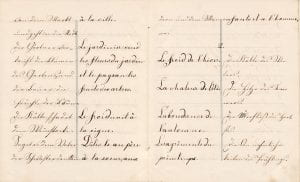
Discuss your crowd sourcing experiences from helping an individual’s research through to large indexing projects. (Or do you avoid crowdsourcing?)
Asking the crowd for help with getting material from paid for genealogical sites or free I think is wrong. There are copyright restrictions and these should be followed.
Yeah that irks me. Like, I’m paying this large sum money because I’m using their website for the research I am doing. And copyright copyright copyright. So many of them have free trials or a month payment if you don’t want to fork out more $$$
Or join a society, go to a library or @FamilySearch centre, etc. There are so many places you can source stuff than elect to break copyright.
I’m a contributor to both @IrelandXO and @duchas_ie The former involves helping individuals with their research and the latter involves transcribing the Irish schools’ folklore project from 1930s. I’ve also assisted individuals on other sites
I was very excited to be able to help with this using my knowledge of the excellent resources of bda-online.org.au
I’m about to start a crowdsourcing project during the Christchurch Heritage Festival in October, which I can’t tell you the details of yet… But stay tuned…
so far, only recently starting using social media for crowd sourcing, which have pointed me in the direction of new resources, especially with overseas research. Only started blogging which might help others in the future
there are lots of ANZAC sites that crowd source data on specific soldiers and war memorials.
The Online Cenotaph – Auckland War Memorial Museum is an example of that
Years ago I went to the research room. Probably my first exploration into checking out archives. A bit more specialist than the local library. With so much online I am wondering if the research room still exists. Could not see about it with a quick online check.
Kia ora, Pou Maumahara Memorial Discovery Centre replaced the old Armoury on Level 2 in 2016. The public are welcome to use the published resources and contribute to #OnlineCenotaph aucklandmuseum.com/war-memorial/o… We are happy to answer any questions
Another crowdsourcing opportunity is Scottish Indexes which is getting support from indexers .
I have just this week begun to transcribe records for @scottishindexes This is my first time transcribing
I was transcribing Naval records for the TNA there for a second too last year.
Just started my first page @scottishindexes They’ve given me so much in past 18 months – 11 free 8 hour conferences. I felt the need to payback a little
Another site I’ve been able to contribute to collection.nelsonmuseum.co.nz/explore collection of digitised glass plate negatives. Identified photos of gg-gparents
a bazillion years ago when I started I helped @GSQPresident with indexing deaths during JAn-June 1916. You can imagine given WWI. I suspect no one has ever looked at them
never underestimate how much you’ve helped dear Pauleen. I think that’s the tragedy is that much of the work is unseen/unrecognized and yet used all the time.
Like some software recognises the developers it would be nice to recognise the workers by adding to digital documents people that helped.
I suspect many people using #ancestry or #findmypast don’t realise the indexes have been created by societies as they don’t read the source info
I have made connections and found people who emigrated using @WikiTreers
I get family info requests on my Irish and Dorfprozelten blogs which helps others
I use FreeUKGen sites @FreeUKGen and have donated to them did start transcribing years ago but did not carry on
and I imagine to a degree that’s what @LostCousins might be all about too, yes?
I suppose a recent/continuing experience is being part of a Facebook group for my Gill ancestors and helping write up a document of all the descendants on my line from my 4x G Gparents down & assisting others with writing their line.
good result from crowdsourcing here 3 different versions of one photo enhanced by Rootschat folks after I asked for advice on FBook – see post below
Not a big crowdsourcing person. Really a lack of time as I work full time. I think it is a great idea although some of the questions I see on social media asking for help could be solve with a google search. Not sure they are lazy or what.
yes someone complained about that on my facebook knitting group today but I think it is just people want to hear from a human not a machine where they can find stuff or what they should be using.
I love transcribing Tassie convict records but usually get the person to type out what they can first, then I help with the unknown bits.
I reckon some of the best crowd sourcing that has happened has been during the UTAS course – by sharing assignments for everyone to read, I got some excellent advice/feedback from other students. (Only shared after assignment had been marked – Ed)
I am very busy on @WikiTreers but have previously transcribed for Family Search
Just today I have a comment on my latest post suggesting I have the age and time period out by a decade – love that input!
I agree I get all sorts of unexpected info and requests from my blog
I love it when people make contact through the blog when if they recognise their ancestor in my post
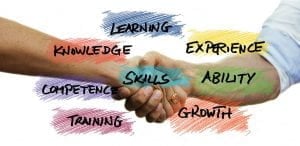
Have you any plans or suggestions for celebrating National Family History Month in Australia & NZ?
I attended the opening talk by Zoom with @HicksShauna and plan to attend the closing one with @fiona_memories. Our group is running a talk with Shauna via zoom also.
Where do you find out about all these talks, etc?
good point Brooke. I think we should have some kind of national calendar like the NFHM calendar AFFHO did but for all the time. There is conferencekeeper.org/event-submissi… but I suspect a US focus.
Great idea – another thing we need a volunteer to upkeep? NZSG has an events calendar. Perhaps AFFHO could have n annual calendar. genealogy.org.nz/Events-Calenda…
Sharn’s talk was so amazing. I really do wonder at the value of having bricks and mortar if we are safer using zoom. It was always so hard to get people to use the library anyway – I think our efforts now need to go into digitizing as much as we can.
Hoping to get to a family history day next Saturday. Wellington Region #FamilyHistory event (combined Wgtn branches of NZSG)
Might see you there, Jane. I’m selling raffle tickets in afternoon.
ah raffle tickets. The funding lynchpin of many a society 😉
Auckland and Christchurch Family History Expos. Launching a new Plan to Publish online course plus some new guides to help with publishing and sharing your research.
When I can get back on the computer, re start my blog!!! Dormant since 2018.
A3 #NFHM #ANZAncestryTime in lockdown so lots of online activities and blogging. Today’s https://t.co/mvuP4Jp7F4 pic.twitter.com/18lWN9CmPE
— Carmel Galvin (@crgalvin) August 3, 2021
I have joined in with @luvviealex #NFHM2021 Blogging Challenge to blog every week or more often in August
#ANZAncestryTime A3 This is such a great question and so I’m going to take the opportunity to promote the Blogging Challenge we all created https://t.co/aUwy4UpHc8 and also the Bingo card I created for us this month or the quiz https://t.co/WaqrM4FzCA pic.twitter.com/wSzGREt1uY
— alex daw (@luvviealex) August 3, 2021
Am doing two talks at Rosny Library – will probably be half hour talk then hour and a half to do practical stuff from the talk
I’m going to a talk at my local Family History Society. This will be my first visit
The opening talk to Family History month in AUS & NZ discussed the future of #familyhistory societies. What role do you see societies playing in the future?
you can now have a speaker in London give a talk to a society in Cheshire watched by someone in America that’s the one good thing to come out of the last two years, but like archives, if we don’t use family history societies they will disappear
I really like locality chats eg run by #DevonFHS for a gp of Parishes, sharing real local knowledge, alongside FB for questions between chats. #RyedaleFHG have informal Zoom chat (how to peel a banana to detailed FH questions/sharing finds informally – is great too.
I have used #familyhistory societies in the past, and can be useful as they have inside knowledge of counties and towns, particular maps. They do need be more involved with social media.
#future very much depends on members/committees keeping up to date w/ #technology, making their resources available #Online / in #Digital format, changing mindset from pull to push ie as much if not more online teaching content & resources as #f2f engagement
Check out Part 1 of podcast from last week between Andy of @AFHpodcast & Margaret from @FHSofCheshire – who discuss the benefits of #FamilyHistory societies. Well worth a listen Link – amateurfamilyhistory.com/2021/07/28/epi…
Personally I think local Societies need to be more interactive with all members do combined meetings about local topics
Even still, a lot of online sessions are held during work hours. I usually sign up If it has a watch later option, but I always forget to watch it later.
And more flexible timing. I know I could only go at weekends or evenings when I worked and had a family at home.
very true. And if we got younger presenters that might suit them better anyway.
I (Alex) think more user-generated content is essential and I think that has been part of SAG’s success with Friday afternoon chats. I have been so impressed with members’ contributions.
The issue though is how many societies we can afford to be members of. How do you weigh up which to keep, which to join, which to leave?
I expect value for money especially when your already a subscriber to several other websites, plus other costs involved in buying Certs etc, #genealogy is not a cheap hobby and some people should not expect it to be freely given either
I’ve never been able to get myself into the society thing. Maybe because I’m younger? I’m not sure. Joining a society just hasn’t spoken to me. I love the online fam history groups – Maybe they could have a fb group if they don’t already.
My English ancestors come from 20 English counties but I’ve never really considered joining a Society mostly due to cost of joining so many, I would follow them on Twitter/Facebook so I could keep up to date with news from the Society’s
excellent point which I hadn’t considered before. You just can’t afford to join every society can you ? But Facebook is free 🙂
And don’t forget ancestorian.com That is free too
At least with following Society’s on FB/Twitter if I see a post made by the relevant society I can comment or send a message and make enquiries
I would join societies for areas my ancestors are from if I knew joining would be useful. If it’s not going to be helpful, why bother?
Which means that #FamilyHistory societies need to MARKET themselves. What is the value proposition for joining a society? (My idea of becoming a marketing guru for FH societies keeps growing 🙂
Agree, I think the majority of members are retired or have a lot of time. Often only open few hours during the day while others working. They can be useful but again hit and miss
The successful societies will weigh up the costs of going online with the number of members they may attract subs will reflect this
Local Societies know the peculiarities of their area and history useful for researchers from afar they need to promote this
completely agree Hilary. The most successful posts for QFHS Facebook page are about the local projects we have indexed or digitized.
Societies need to adapt to changing social & economic conditions. Change takes time to implement and requires planning. Might be too hard for many organisations when they might not have the skills to succeed at adapting.
In order to survive Societies need to encourage younger people and involve themselves more with social media
Societies need to upgrade websites and start getting younger people into their ranks
Blog posts
Carmel – Using photo enhancement as crowd sourcing,
Alex – Genealife in lockdown challenge intro, Sum up after the challenge,
